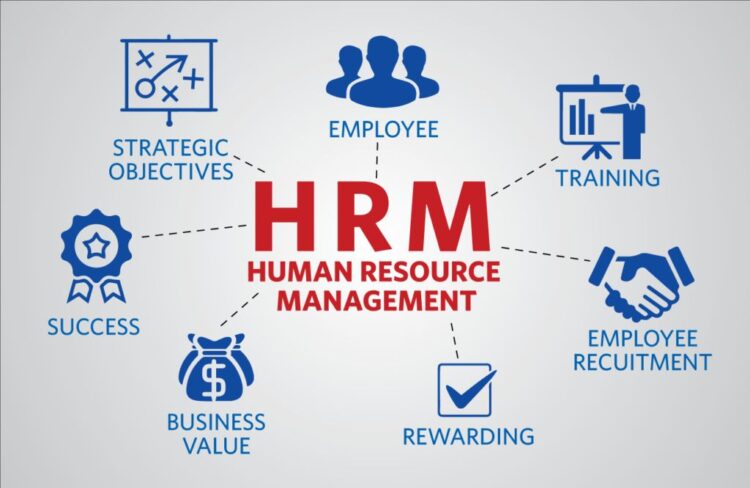In the dynamic and competitive landscape of modern business, a comprehensive understanding of various business disciplines is paramount for achieving and sustaining success.
Business knowledge encompasses a wide array of skills and concepts, ranging from financial literacy to strategic planning, marketing, operations management, and beyond. This article delves into the critical areas of business knowledge that are essential for entrepreneurs, managers, and business professionals to thrive in today’s economy.
1. Financial Literacy

At the core of business knowledge lies financial literacy. Understanding financial statements, budgeting, forecasting, and cash flow management is crucial for making informed decisions. Key financial statements include the balance sheet, income statement, and cash flow statement, each providing valuable insights into the company’s financial health.
- Balance Sheet: A snapshot of a company’s financial position at a specific point in time, showing assets, liabilities, and equity.
- Income Statement: A summary of revenues and expenses over a period, highlighting profitability.
- Cash Flow Statement: Tracks the flow of cash in and out of the business, crucial for maintaining liquidity.
Effective financial management also involves understanding key metrics such as return on investment (ROI), gross margin, net profit margin, and break-even analysis. These metrics help in evaluating the company’s performance and guiding strategic decisions.
2. Marketing and Sales
Marketing and sales are the driving forces behind revenue generation. A deep understanding of market dynamics, consumer behavior, and effective communication strategies is essential. The key components of marketing knowledge include:
- Market Research: Gathering and analyzing data about consumers, competitors, and market trends to make informed marketing decisions.
- Branding: Creating a strong, recognizable brand that resonates with target audiences.
- Digital Marketing: Utilizing online platforms, social media, and digital advertising to reach and engage customers.
- Sales Strategies: Techniques for prospecting, lead generation, and closing sales, including consultative selling and relationship-building.
The ability to craft compelling value propositions and develop integrated marketing campaigns can significantly enhance market presence and drive sales growth.
3. Operations Management

Operations management focuses on the efficient production and delivery of goods and services. Key aspects include supply chain management, process optimization, and quality control. Understanding these elements ensures that businesses can deliver value to customers while minimizing costs.
- Supply Chain Management: Coordinating the flow of materials, information, and finances from suppliers to end customers.
- Process Optimization: Streamlining operations to enhance efficiency and reduce waste.
- Quality Control: Implementing standards and procedures to maintain product and service quality.
Effective operations management is vital for maintaining competitive advantage and ensuring customer satisfaction through reliable and efficient service delivery.
4. Strategic Planning
Strategic planning involves setting long-term goals and determining the best course of action to achieve them. This requires a thorough understanding of the business environment, including competitive analysis, market opportunities, and internal capabilities.
- SWOT Analysis: Identifying strengths, weaknesses, opportunities, and threats to inform strategic decisions.
- Strategic Goals: Defining clear, measurable objectives aligned with the company’s mission and vision.
- Implementation Plans: Developing actionable steps and allocating resources to execute the strategy.
Regularly reviewing and adjusting the strategic plan in response to market changes and internal developments is crucial for maintaining relevance and achieving sustainable growth.
5. Human Resource Management
Effective human resource management (HRM) is essential for building and maintaining a productive and motivated workforce. Key HRM functions include recruitment, training and development, performance management, and employee relations.

- Recruitment and Selection: Attracting and hiring the right talent to meet organizational needs.
- Training and Development: Providing opportunities for employee growth and skill enhancement.
- Performance Management: Setting performance standards, conducting evaluations, and providing feedback.
- Employee Relations: Fostering a positive work environment and addressing employee concerns.
Investing in HRM practices helps in retaining top talent, enhancing employee satisfaction, and driving organizational success.
6. Leadership and Management
Leadership and management skills are critical for guiding teams and ensuring effective execution of business strategies. Good leaders inspire and motivate their teams, while effective managers ensure that organizational processes run smoothly.
- Leadership Styles: Understanding different leadership approaches (e.g., transformational, transactional) and their impact on team dynamics.
- Decision-Making: Making informed, timely decisions based on data and intuition.
- Conflict Resolution: Addressing and managing conflicts constructively to maintain a harmonious workplace.
- Change Management: Leading organizations through change by managing transitions and minimizing resistance.
Developing strong leadership and management capabilities is essential for navigating challenges and driving the organization towards its goals.
7. Business Law and Ethics

A solid understanding of business law and ethics is crucial for ensuring compliance and maintaining a positive reputation. This includes knowledge of contracts, intellectual property, employment law, and regulatory requirements.
- Contracts: Understanding the elements of legally binding agreements and ensuring contractual obligations are met.
- Intellectual Property: Protecting the company’s inventions, trademarks, and copyrights.
- Employment Law: Complying with labor regulations and ensuring fair treatment of employees.
- Regulatory Compliance: Adhering to industry-specific regulations and standards.
Ethical business practices not only help in avoiding legal issues but also build trust with customers, employees, and stakeholders.
8. Customer Relationship Management
Customer Relationship Management (CRM) involves strategies and technologies used to manage interactions with current and potential customers. Effective CRM helps in understanding customer needs, improving customer satisfaction, and fostering loyalty.
- CRM Systems: Using software to track and analyze customer interactions and data throughout the customer lifecycle.
- Customer Service: Providing exceptional service to meet customer needs and resolve issues promptly.
- Customer Feedback: Collecting and acting on feedback to improve products and services.
Strong CRM practices are vital for building long-term relationships and driving repeat business.
9. Innovation and Entrepreneurship

Innovation and entrepreneurship are key drivers of growth and competitive advantage. This involves identifying opportunities, taking calculated risks, and fostering a culture of innovation within the organization.
- Opportunity Recognition: Identifying unmet needs and market gaps.
- Risk Management: Assessing and mitigating potential risks associated with new ventures.
- Innovation Culture: Encouraging creativity and experimentation among employees.
- Business Planning: Developing detailed plans for launching and scaling new ventures.
Embracing innovation and entrepreneurship can lead to the development of breakthrough products and services, propelling the business forward.
10. Data Analysis and Business Intelligence
Data analysis and business intelligence involve collecting, analyzing, and interpreting data to make informed business decisions. This requires proficiency in data analytics tools and techniques.
- Data Collection: Gathering relevant data from various sources.
- Data Analysis: Using statistical and analytical methods to uncover insights.
- Business Intelligence: Leveraging data to inform strategic decisions and improve performance.
Harnessing the power of data can lead to more accurate forecasting, improved operational efficiency, and better understanding of customer behavior.
Conclusion
In today’s rapidly evolving business environment, possessing a broad and deep understanding of these essential areas of business knowledge is critical for success.
Whether you are an entrepreneur starting a new venture, a manager leading a team, or a business professional looking to advance your career, continuously developing and updating your business knowledge will enable you to navigate challenges, seize opportunities, and achieve your goals.
Investing in education, staying informed about industry trends, and applying best practices will ensure that you remain competitive and capable of driving sustained success in your business endeavors.







